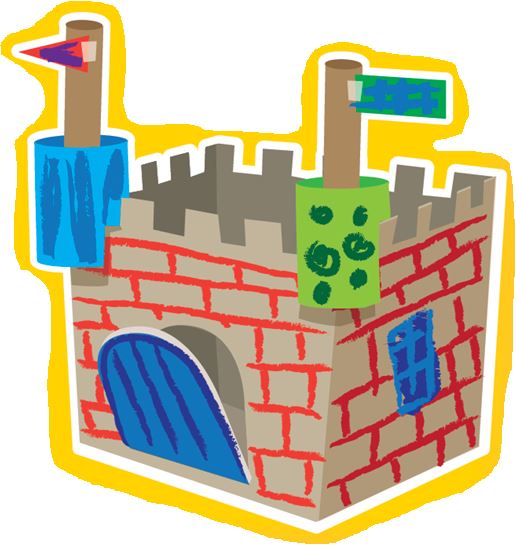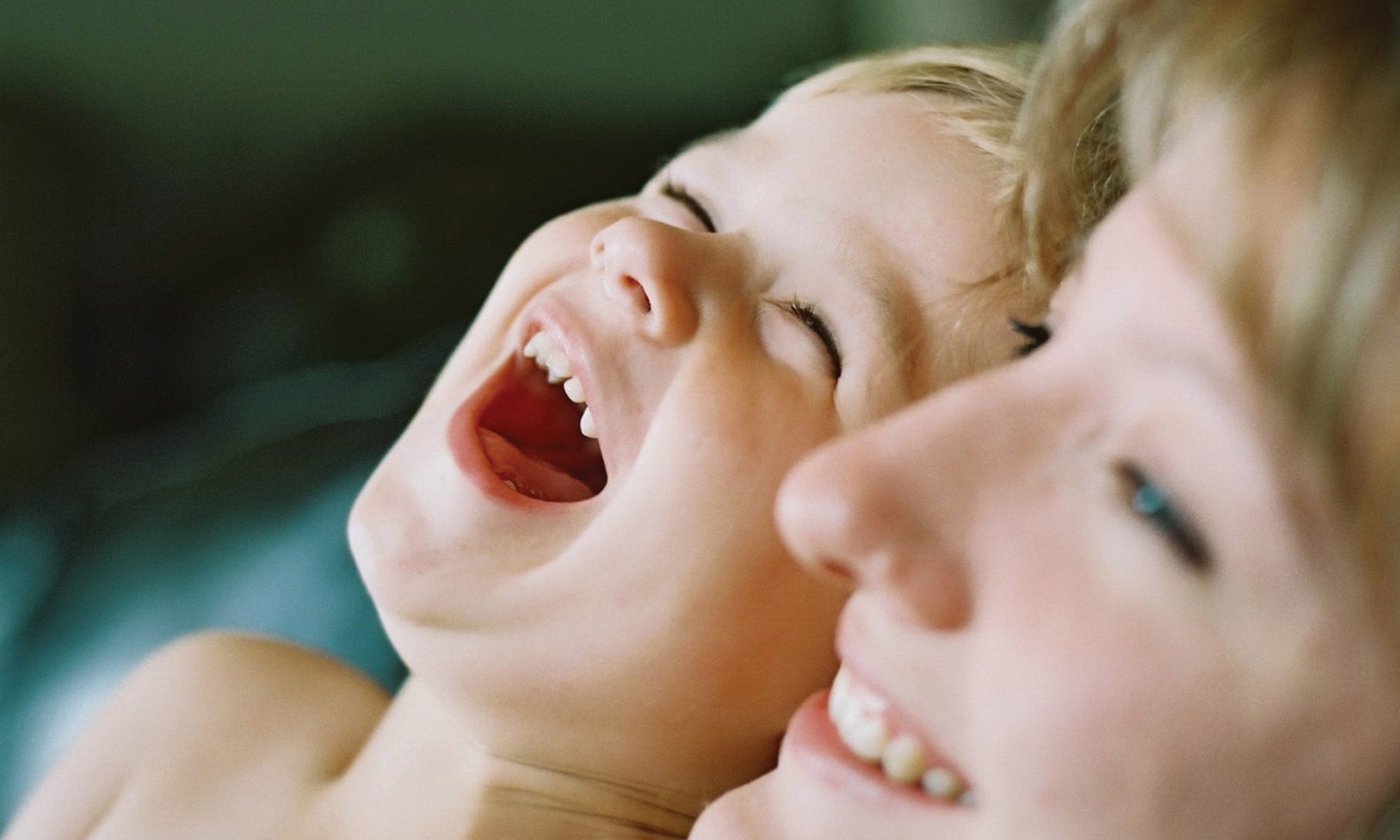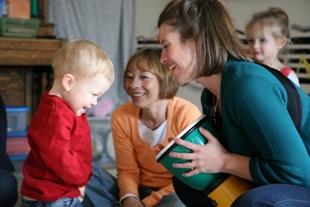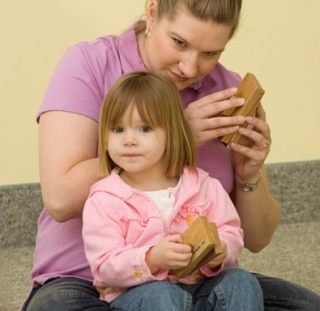 Imaginative. Adventurous. Exuberant. Brash. Social. Silly. Musical. Preschoolers are the living definition of all of these words… and more! It’s what we love most about this delightful age. Their energy, curiosity, and delight in living life out loud are fostered by an increasing sense of independence and self-confidence. They are developing their individuality and want to be noticed and acknowledged. Preschoolers are social butterflies, and their social skills are blossoming, as are their growing abilities to cooperate, problem-solve, share, and make friends.
Imaginative. Adventurous. Exuberant. Brash. Social. Silly. Musical. Preschoolers are the living definition of all of these words… and more! It’s what we love most about this delightful age. Their energy, curiosity, and delight in living life out loud are fostered by an increasing sense of independence and self-confidence. They are developing their individuality and want to be noticed and acknowledged. Preschoolers are social butterflies, and their social skills are blossoming, as are their growing abilities to cooperate, problem-solve, share, and make friends.
Play is the preschooler’s work. In fact, there is no better way for these eager and curious thinkers to learn, grow, and develop than through play – play alone and play with others – including mom and dad! The expansiveness of the preschooler’s personality overflows into his vocabulary and self-expression. Preschoolers love playing with words, and they like to talk. A lot. And if you’ve heard it once, you’ve answered it a thousand times – this is the age of “why.” It’s how they learn and interact. Their movements become more expansive too, and the need to move is because of their boundless amounts of energy. (And you thought you were tired chasing them as toddlers!)
But perhaps the best way to sum up the preschooler season of childhood is with the word “readiness.” Preschoolers are on the verge of so much potential. They are ready – ready to try new things, take turns, be challenged, and work cooperatively with others. Simply put, they’re ready to get ready!
With music as the vehicle, Kindermusik helps your child be ready. Ready to face life head on, ready for school, ready for new adventures, and ready for that next step in music. Movement, imagination, play, creativity, exploration, interacting, and ensemble all set the stage for making sure your child has every advantage in a very critical season of childhood – that wonderful transition from baby to big kid that we call “preschooler”!
Here are four of the most powerful benefits of music for preschoolers:
1. Music encourages children to move.
Movement and music are as closely connected as movement and learning. At a time when there are increasing concerns about how long these young children are being required to sit still, being able to move to music is a gift. Here’s how a Washington Post reporter summed it up in her recent article, “In order for children to learn, they need to be able to pay attention. In order to pay attention, we need to let them move.”
2. Music fosters a sense of community and belonging.
At the core of every human being is a desire to belong. When that need to belong is fulfilled, it contributes to healthy emotional development and well-being. Self-confidence grows as a child learns to function within a group. And there’s no happier group experience than making music together!
3. Music provides an outlet for self-expression.
With gifts, experiences, thoughts, and ideas that simply overflow, a music class offers a secure environment for each individual child to explore, learn, and contribute. The value is in the experience itself with play, discovery, singing, story telling, and new challenges as the tools that open the door for self-expression, meaningful learning, and a lifelong love for music.
4. Music readiness and academic readiness go hand-in-hand.
The same skills and experiences necessary for a child to be ready for music lessons when they are older are the same skills and experiences that enhance and even accelerate academic readiness and success. Listening, identifying patterns, problem-solving, creative thinking, and self-confidence are skills that music develops – skills that are also a measurable contributors to academic achievement.
For parents…
 You want to give your child every advantage. And yet, you don’t want to let him or her grow up too fast. Childhood is meant to be savored and enjoyed, a time that you share experiences and create memories that stay in the heart for years to come.
You want to give your child every advantage. And yet, you don’t want to let him or her grow up too fast. Childhood is meant to be savored and enjoyed, a time that you share experiences and create memories that stay in the heart for years to come.
Kindermusik helps you linger in those precious moments of childhood and make the most of the preschool season with your child. With a class structure that includes time apart and time together, Kindermusik is perfect for the preschool season of childhood. You’ll love watching your child blossom, and you’ll love the way your time together in class and your music-making at home brings you together in new and special ways.
And the icing on the cake is knowing that you’re giving your child a gift that truly lasts a lifetime – the gift of a musical foundation and love for music that uniquely prepares your child like no other single activity can.
Kids Crafts Inspired by Kindermusik@Home
What do a cardboard castle and a paper plate sun have in common? They’re both two of the many kids craft ideas conveniently found in Kindermusik@Home.
Crafts for Preschoolers
 What’s great about the cardboard castle featured in Make Believe are the kid-friendly instructions. With just a little help from an adult, they are just perfect for preschoolers who thrive on a little independence and the joy of creative self-expression. The best parts are all the imaginative pretend play once the castle is complete, and the learning that happens best through active play and hands-on interaction.
What’s great about the cardboard castle featured in Make Believe are the kid-friendly instructions. With just a little help from an adult, they are just perfect for preschoolers who thrive on a little independence and the joy of creative self-expression. The best parts are all the imaginative pretend play once the castle is complete, and the learning that happens best through active play and hands-on interaction.
Crafts for Toddlers
 A simple but fun craft idea for toddlers is found in Kindermusik@Home, Up in the Sky. Hint: You might want to make two so that you can both sing and dance with your Paper Plate Sun. (Or turn on the recording of “Mr. Sun.”) The paper plate sun is one of several “sky crafts” that promote interactive learning while also inspiring together-time ideas.
A simple but fun craft idea for toddlers is found in Kindermusik@Home, Up in the Sky. Hint: You might want to make two so that you can both sing and dance with your Paper Plate Sun. (Or turn on the recording of “Mr. Sun.”) The paper plate sun is one of several “sky crafts” that promote interactive learning while also inspiring together-time ideas.
As a unique benefit of your Kindermusik enrollment, your Home Materials, conveniently available when you log in to Kindermusik@Home, offer you and your child music and then some – engaging, delightful craft ideas being among the highlights.
Together time fueled by creativity and imagination…
…all inspired by the power of Kindermusik – in class and at home all week long.
Shared by Theresa Case, whose Kindermusik program at Piano Central Studios is among the top 1% of Kindermusik programs worldwide.
Thanksgiving song and activities: Over the River and Through the Woods
Do you remember this song?
Over the river and through the woods
To Grandmother’s house we go.
The horse knows the way to carry the sleigh
Through white and drifted snow.
 It’s hard to say when this famous American poem became so synonymous with the Christmas holiday, but the tune truly belongs to Thanksgiving.
It’s hard to say when this famous American poem became so synonymous with the Christmas holiday, but the tune truly belongs to Thanksgiving.
Written by journalist, poet, and human rights advocate Lydia Maria Child, the poem first appeared in Child’s Flowers for Children, Volume 2, in 1844.
It was originally titled “A Boy’s Thanksgiving Day,” and celebrates Child’s childhood memories of visiting her Grandfather’s house.
As an advocate for Native American rights, anti-slavery laws, and women’s voting rights, Child raised her voice on many issues flaring in the in the 1840s, but refused to raise a fist. Her writings urged people to find a peaceful, non-violent way to progress.
The song can be a great holiday tradition for your family, too. We’ve put together a few simple ways to adapt the song to your child’s learning ability.
Learn more about helping families create musical traditions together in online Kindermusik Educator training. Click here to receive FREE information on becoming a Kindermusik Educator.
Baby (newborn to 2)
Hold your baby close and bounce in rhythm to the music, or pat the steady beat of the song on her back as you sing the song. Studies show a baby prefers the sound of her mother’s voice, and the sound of your voice paired with rhythm of the words – as you gently rock baby, or pat her on the back – helps your baby begin to identify the patterns of language.
Toddler (2 to 3 years)
The “giddy-up” tempo of this song makes it a great lap bounce for toddlers. Exaggerate the movement words, and make the weather and animal sounds mentioned in the lyrics to help your toddler better connect the vocabulary word to the physical movement.
Preschool (3 to 5 years)
Sing the song together and ask your preschooler to draw a picture of the story, and act it out: Pretend to ride a sled, ride through the wind, and ring bells!
Big Kids (5 to 7)
Engage your big kid’s active imagination and write your own lyrics about your family’s Thanksgiving tradition. Use the “Over the River” melody with lyrics about your own journey to Grandma’s house. What do you see? What does the weather do? Do you go over a river? Write your own lyrics.
Click here to see the long and short form of the lyrics.

Play Kindermusik @Home
Talk with your family about the meaning of the Thanksgiving holiday. You’ll find several folk and Americana songs in this collection of Kindermusik songs, “America the Musical Vol. 1 and 2.” Lydia Maria Child would have loved the song, “Follow the Drinking Gourd,” a song used to help people find the Underground Railroad.
Alvin and the Chipmunks
The Andrews Sisters and Danny Kaye
Meet a Kindermusik educator: Aimee Carter
Location:
Brandon, Florida
Studio name and link:
Delightful Sounds
www.delightfulsounds.com
Number of years you’ve taught Kindermusik:
7
Describe yourself in five words or less:
Creative, fun, energetic, and silly
Favorite Kindermusik song:
The Morning Song, because I like coming up with crazy animal sounds for the unexpected, animal choices like manatees or hippos.
Favorite Kindermusik activity, and why:
Anything with bilibos. I love all the ways we can play with them!
A proud moment in a Kindermusik classroom:
I love getting to see all the first steps and first words along with the parents. I get pretty excited about seeing the children grow and learn.
Something your Kindermusik children or families have taught you (could be inspirational, humorous, practical, etc.):
The children have really helped me become even more creative. They can really get outside of the box sometimes, and I LOVE that!
Something funny a child has said or done in your classroom:
The preschoolers crack me up. I never know what they will say or do next. Last week, one of the children stopped me in the middle of a song to ask “if I ever had fire come out of my butt?” LOL I never could figure out what it had to do with the train song???
The reason you teach:
I am passionate about music and the development of children. Kindermusik allows me to combine both of these as I work side by side with such wonderful families each week!
Meet a Kindermusik educator: Pam Carmagnola
Location:
Crozet, VA (outside of Charlottesville, in the foothills of the beautiful Blue Ridge Mountains)
Studio name and link:
Kindermusik with Pam
www.kmusikwithpam.kindermusik.net
Number of years you’ve taught Kindermusik:
Eight
Describe yourself in five words or less:
Dedicated, child-centered, professional, enthusiastic
Favorite Kindermusik song:
“Giraffe and Zebra Move-Along,” from Zoo Train
Favorite Kindermusik activity, and why:
My current favorite activity is the circle dance from Zoo Train, to “Drover’s Dream.” It’s got a great beat and is very adaptable to different movements. Everyone loves to hear the unique sound of the didgeridoo!
A proud moment in a Kindermusik classroom:
After several years of classes, including Village and Our Time, a sweet preschooler now enrolled in ABC Music & Me is demonstrating his solid understanding of the concepts he has learned in Kindermusik. Steady beat, pitch, tempo – you name it! His good beginning truly will never end!
Something your Kindermusik children or families have taught you (could be inspirational, humorous, practical, etc.):
“Shiny stickers are special!” “Hand sanitizer is cold!” “An opened/flattened castanet makes a great pretend phone!” And finally, “Kindermusik is a place where I am accepted and loved for who I am, just the way I am right now!”
Something funny a child has said or done in your classroom:
One of my favorite, most memorable moments occurred during vocal play when we were making doorbell ringing sounds. “Ding, dong” said Abigail’s mom. “Pizza’s here!” said two-year old Abigail!
The reason you teach:
I teach Kindermusik for many reasons. The one closest to my heart is creating those special moments when parent and child really connect in class. These days, precious time to focus solely on our children is rare. It is a blessing to provide these opportunities for families in my community.
Your child rocks!
 When your baby cries, you instinctively scoop him up and rock him. His need to move and his ability to be soothed by movement are vital in the first 15 months of life when the vestibular system – the area that gives him a sense of balance and distance – is developing.
When your baby cries, you instinctively scoop him up and rock him. His need to move and his ability to be soothed by movement are vital in the first 15 months of life when the vestibular system – the area that gives him a sense of balance and distance – is developing.
Aside from the physical benefits of movement, your child also recieves an emotional benefit from rocking and bonding with you. This quiet, rocking ritual can provide him with a sense of security, allowing him to grow into an assured, confident learner with a healthy self-esteem.
Rocking is still important as your young child grows and will often become a favorite – and memorable – activity for both child and parent. Even older children benefit from the stimulation of the vestibular system. Urges to run and tear around the house can be mellowed by taking a few minutes for quiet or even more active rocking.
Kindermusik Tips for your Baby, Toddler, and Preschooler
- > Rocking your baby: Place a blanket on the floor and lay your baby in the middle. With an adult caregiver on either side, pick up a corner of the blanket and gently “hammock” your child. If your baby doesn’t like rocking this way, simple lay him on his back and gently rock him side-to-side to the rhythm of the music.
- > Rocking with your toddler: Toddlers can rock a favorite stuffed animal, or while you sit on the floor, your toddler can hug you from behind as you rock back and forth to the music.
- > Rocking with your preschooler: Preschoolers will love to curl their bodies into little balls, and rock and roll around the room. Want to let your inhibitions go? Do this with them! Fits of giggles are sure to follow.
The family that laughs together…
 Giving your child a simple smile can improve his or her self image and brain development. When your child sees you smile, it not only makes her feel good, it strengthens connections in the brain as well.
Giving your child a simple smile can improve his or her self image and brain development. When your child sees you smile, it not only makes her feel good, it strengthens connections in the brain as well.
Studies have shown that smiling and laughter can strengthen the immune system, lower blood pressure, and reduce stress levels. And a healthy sense of humor can help a child handle problems as they grow into adults, as well as enhance the social skills they need to make friends.
Along with smiling, laughter is a sound that’s naturally interesting to your toddler. As he’s getting ready to learn to talk, he needs help learning how to listen so he can distinguish one sound from another to form his first words. Play active listening games like “One ha-ha-happy family”, described below. As you listen, exaggerate your body posture, lean into the sound, brighten your eyes, and model the body expressions of a good, active listener for a happy, talking toddler.
One ha-ha-happy family
Laugh out loud. Ask your toddler to make the sound back. Laugh lots of different ways to your toddler. Wait for her to copy you, and vice versa. Record the sound of your toddler laughing. (Family idea: Make a “Laughter Scrapbook”! Record your family laughing together and all the different ways you can laugh. Keep adding to the recording as the years go and by and hear how the sound of your laughter changes.)
As well as listening games, why not combine physical games with music? This will give your toddler something to laugh about, learn more words about, and develop better coordination.
When you’re a toddler, running is usually accompanied by fits of laughter. This new found physical control makes games like “Ring around the Rosy” a huge hit. Rosy can fall down or do the silly walk – have fun by exploring lots of ways Rosy can “all fall down” by doing other movements that your toddler finds funny, like playing chase or running. Explore sound with your baby before bedtime. Put on your favorite lullaby (or sing it yourself) and play along gently with a musical instrument.
Say “Cheese!”
Smiling and laughing play a large part in the bonding and attachment process that help your child feel secure and safe. Children primarily use their parents’ facial expressions as a guide for behavior. The emotional experiences a child has (especially during the first years) help shape emotional responses throughout life. It’s worth remembering that a simple smile is one building block for your relationship with your child. Your face is where your child looks for reassurement, comfort, and attention. So don’t be afraid to show your child those pearly whites!
Meet a Kindermusik educator: Amy James
Location:
Bend OR
Studio name and link:
DevelopMusic
www.developmusic.com
Number of years you’ve taught Kindermusik:
5 years
Describe yourself in five words or less:
Loves music, loves to dance
Favorite Kindermusik song:
Our Time Hello since it’s the one my daughter sings when she “plays” Kindermusik with her dolls
Favorite Kindermusik activity, and why:
I love any of the circle songs because I love the sense of community we create as we all come together in a circle and dance.
A proud moment in a Kindermusik classroom:
When there is a connection made between a parent and child, parent and parent, or teacher and child
Something your Kindermusik children or families have taught you (could be inspirational, humorous, practical, etc.):
Be uninhibited, just go for it when singing, dancing or moving. Throw off the outside pressures of parenthood and just have fun with your little one because they do not stay little for very long!
Something funny a child has said or done in your classroom:
There was a little boy who never crawled, he would just scoot on his bottom around the room and he was fast!
The reason you teach:
I teach because what we teach can make a difference. It makes a difference for the families in the present by allowing them a special time together. It also makes a difference in the future because of the foundation being laid for future learning. I’ve seen the tremendous difference it has made, especially for those kids with other special needs. Kindermusik is a place where they can have fun and be successful.
Kids can get stressed too
 Relaxation is something we all search for, yet we don’t always find time for it. Life can be stressful and fast-paced, and it’s often difficult to find time to let our bodies and minds relax. Sometimes even when we’re “relaxing” we’re thinking about what’s next on the to-do list!
Relaxation is something we all search for, yet we don’t always find time for it. Life can be stressful and fast-paced, and it’s often difficult to find time to let our bodies and minds relax. Sometimes even when we’re “relaxing” we’re thinking about what’s next on the to-do list!
Adults stress tend to stress about grown-up things like the responsibilities of maintaining a family, paying the bills, and so on. But children experience stress too. They may not be able to express it, but here are some behaviors that could be signs of stress:
- > mood changes
- > changes in sleep patterns or nightmares
- > exhibiting behaviors of a younger age (thumb sucking, bedwetting, clinging, etc.)
- > no appetite or wanting to eat all the time
- > needing to go to the bathroom frequently
- > nail biting
- > engaging in disruptive behavior
If you notice some sudden changes in your child’s behavior, stress could be a factor.
You may ask what on earth could they be stressed about? After all, they don’t have any bills to pay! Children tend to experience stress in new situations, when changes happen, or when they are confronted with challenges that require new skills. These might include learning to play with a new toy, learning to share with a sibling, making new friends, completing a project, and so on.
But don’t get stress yourself! Parents and caregivers can model and teach children ways to manage stress. Here are a few suggestions:
- > keep a consistent routine
- > make sure the child is getting enough sleep
- > if the source of stress can be removed, simply remove it
- > laugh, joke, sing, dance
- > set aside some quiet time
- > do something active to relieve stress, like jumping, running, or playing
- > do a creative, calming activity like coloring
These activities will help your child learn to manage stress and deal with challenging situations. (Of course, if a behavior persists or becomes a serious issue, you may need to consult your physician.)
The goal is simple: make your kids feel good. When they feel good, you feel good!
What other activities can we do with our children to help them manage stress? Post an idea in the comments area below.
Special thanks to Kindermusik educator Vanessa Cabrera for sharing this post from her Language, Music & More blog. Information about Vanessa’s Maryland Kindermusik program can be found at her blog.
Children are ready to learn long before schools are ready to teach
 Music is a magic little key to your child’s heart and mind. It’s a dynamic sensory experience that evokes a powerful response in children. Early exposure to music is a vehicle for profound learning.
Music is a magic little key to your child’s heart and mind. It’s a dynamic sensory experience that evokes a powerful response in children. Early exposure to music is a vehicle for profound learning.
We’ve found that music and movement that involves interaction, demonstration, and exploration is the perfect way to introduce a child to the learning environment. That’s why Kindermusik provides a unique opportunity to begin your child’s preparation for school – and, for that matter, for life.
Our program is carefully structured and developmentally appropriate. That means the music and activities reflect the age of your child. The Kindermusik classroom is set up in a manner that is most similar to what your child will experience in preschool and/or kindergarten.
This can give your child a great head start.
That said, don’t confuse Kindermusik with the potentially stressful environment you might find in a “toddler prep school”. Our program is not design to push children. In fact, quite the opposite. Instead you’ll find that our curricula nurtures and mirrors your child’s development with a fun, engaging, and stimulating environment. We encourage all children to learn and participate at their own pace. You’ll hear our Kindermusik educators say this all the time.
We know that these days parents have dozens of activities to choose for their children. Our goal is to stand out above the rest as the best option for you and your child. We feel that our research-based, research-proven program will not only prepare your child for school and the future, but you’ll get to have a lot of fun along the way!
Want to preview a Kindermusik class for free? Fill out this online form and an educator near you will contact you with more information. We hope to see you in Kindermusik soon!

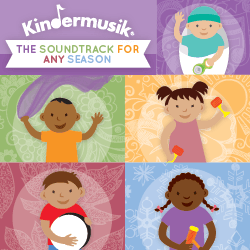
 Experience the benefits of Kindermusik for yourself.
Experience the benefits of Kindermusik for yourself. 